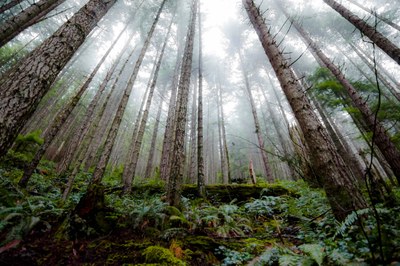
Trip
Day Hike - Grand Prospect
This is a mostly forested, 8.3 mile round trip out and back hike. Our target turn around point will be Grand Prospect. We will hike at a social pace of 1.5 to 2.0 mph with frequent stops. The first three miles have an elevation gain of about 500 ft per mile while the last 1.15 mile section is a bit steeper at 600 ft per mile.
- Sun, Mar 15, 2020
- Foothills Hiking Committee
- Day Hiking
- Adults
- Moderate
- Moderate
- Mileage: 8.3 mi
- Elevation Gain: 2,100 ft
- High Point Elevation: 3,200 ft
- Pace: Social 1.5 to 2.0
- FULL, 1 on waitlist (6 capacity)
- FULL (2 capacity)
- Cancellation & Refund Policy
We will be meeting at Tibbetts Valley Park parking lot at 7:30 am to consolidate cars leaving by 7:50 am and arriving at the Snoqualmie Point trailhead by 8:15 am. We will start hiking no later than 8:30 am.
This is a mostly forested, out and back hike. Our target turn around point will be Grand Prospect. We'll be stopping there for around 15 minutes for a rest/snack break. If the weather cooperates we should have nice views of Mount Si, Teneriffe, and the Snoqualmie Valley. The trail is moderate without anything too steep. The first 3 miles gain about 500 ft per mile while the last 1.15 miles gains about 600 ft per mile. Please be comfortable with the pace (1.5 to 2.0 mph) and 2100 ft elevation gain having recent experience on a similar hikes with snow. Parts of the lower trail are muddy and we will be hiking on snow on the upper half of the trail. Bring a quick snack/lunch to eat at the viewpoint, where we hope to enjoy the views.
If the weather is un-cooperative with high winds, heavy rain or snow then I will send out a cancellation notice.
This will be a mentored hike for Pete Matsudaira, co-lead by Kim Frasher.
**I will send Hello Hiker email on Monday, March 9th with more details**.
Required Equipment
The Ten Essentials
- Navigation
- Sun protection including sunglasses (eye protection) for sunny weather
- Insulation (extra clothing)
- Illumination
- First aid supplies
- Fire
- Repair kit and tools, including knife
- Nutrition (extra food)
- Hydration (extra water)
- Emergency shelter
- Have clothing and gear for rain/snow
- Warm hat & gloves for cold weather/snow
- Trekking poles with the bigger baskets for snow
- Micro-spikes for snow/ice
- Knee high gaiters for mud/snow
